Date:
The summary report outlines findings from the baseline study conducted to implement the Strategic Note 2023–2027, which guides the UN Women's work in Nepal. Divided into four outcomes, the report examines the current state of women's rights and gender equality
Date:
The Gender Analysis Bangladesh 2024 provides an evidence-based assessment of the gendered dimensions of the unrest, examining its impact on women, girls, gender-diverse individuals, and other marginalised groups. Drawing on qualitative and quantitative data collected from 24 districts across the country.
Date:
This is a crucial document that represents a collective voice, uniting women from different backgrounds and generations.
Date:
Women in South-East Asia face diverse online harms. This UN Women research brief seeks to better understand the digital security landscape in South-East Asia as experienced by women activists, human rights defenders, public figures and Internet users at large.
Date:
As in other regions, LGBTIQ+ communities in Asia and the Pacific are vulnerable to various forms of discrimination and violence, which are both similar to and distinct from other individuals and groups in humanitarian emergencies. These vulnerabilities stem from pre-existing inequalities, discrimination, and violence that are frequently exacerbated during crises, and are shaped by multiple intersecting factors.
Date:
Afghanistan faces severe crises, exacerbated by deepening gender inequalities under Taliban rule. More than 70 decrees restrict women’s rights, threatening progress on development goals. Despite this, Afghan women remain resilient, continuing to lead businesses and communities. This paper, marking three years since the Taliban takeover, urges the international community to prioritize women’s rights, aligning policies with human rights, especially as global challenges to gender equality intensify.
Date:
This Facilitator’s Manual, developed by UN Women and the UN University Institute in Macau (UNU Macau), is designed to guide facilitators and organizers in planning, preparing for, and conducting training sessions aimed at building cybersecurity capacity and resilience.
Date:
South-East Asia is witnessing a rapid transformation in human trafficking dynamics as criminal operations increasingly shift online. Trafficking in persons for forced criminality associated with online scam centres and other cyber-enabled threats are increasingly becoming critical security concerns for women in the region.
Date:
The Programme booklet provides an overview of the work of the UN Women Fiji MCO in the Pacific region.
Date:
UN Women is closely examining the opportunities and challenges for lesbian, gay, bisexual, transgender, gender diverse, intersex, and queer (LGBTIQ+) persons’ full equality and inclusion in electoral processes in 2024 and beyond.
Date:
This submission on electoral participation and sexual orientation and gender identity closely examines the opportunities and challenges for lesbian, gay, bisexual, transgender, gender diverse, intersex, and queer (LGBTIQ+) persons’ full equality and inclusion in electoral processes.
Date:
This policy brief addresses some of the key factors and measures to be adopted in a Post-Crisis GESI Analysis, to effectively address a crisis’s differential impacts on gender, social disability, and age. The recommendations are intended to support analyses undertaken immediately after a crisis, to represent structural inequalities...
Date:
The Afghanistan Gender Country Profile, produced with the financial support of the European Union, provides a snapshot of the current situation regarding gender equality in Afghanistan, noting the previous legal and institutional frameworks (from the period 1978–2021), and examining the current decrees, policies and practices shaping the gender equality landscape under Taliban rule.
Date:
There have been few efforts documenting the experiences of WCSOs and WHRDs with cybersecurity threats, their cyber vulnerabilities and the ways they enact cyber resilience. In conducting this research, UN Women and the UN University Institute in Macau (UNU Macau) acknowledge that women are disproportionally negatively affected by cybersecurity risks.
Date:
There are many barriers and challenges to the economic empowerment of women in distress, i.e., residents of shelters and prisons, while there are also success stories of their successful reintegration into society. This baseline study aims to understand the programs, policies, and practices for economic empowerment of women residing in shelters and prisons. Its geographical scope covers the cities of Islamabad, Karachi, Sukkur, Lahore, Multan, Peshawar, and Quetta.
Date:
Based on quarterly consultations in January 2024, a preliminary snapshot of 75 submissions ahead of policy discussions, and statistical modelling undertaken based on figures from the UN Sustainable Development Goals database, this two-page brief summarizes the issue, what Afghan women are saying, why it matters, and what Afghan women want the international community to do.
Date:
This is a crucial document which represents a collective voice, uniting women from different backgrounds and generations who face multifaceted challenges and are deprived of certain opportunities.
Date:
FYLP follows a ground-up approach to understanding, operationalising, and building resources for feminist youth leadership in India, while simultaneously unpacking the context in which these are embedded. The Workbook is one of the Knowledge Products from the programme.
Date:
Through this project, they took on the task of advancing the Generation Equality Forum mandate by creating a contextual programme around building feminist youth leadership in India. FYLP follows a ground-up approach to understanding, operationalising, and building resources for feminist youth leadership in India.
Date:
FYLP follows a ground-up approach to understanding, operationalising, and building resources for feminist youth leadership in India, while simultaneously unpacking the context in which these are embedded.

![[cover]](/sites/default/files/styles/search_image_140px/public/2025-04/np-20250385755-baseline-study-report-07042025-website-960px.jpg?itok=VxHBLOYs)
![[cover]](/sites/default/files/styles/search_image_140px/public/2025-03/np-c1521-rapid-gender-analysis-juldec24-960px.jpg?itok=xUEAahDh)
![[cover]](/sites/default/files/styles/search_image_140px/public/2025-02/bd-c1460-charter-of-demands_eng_960px.jpg?itok=Lx9iXXPQ)

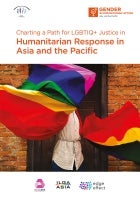
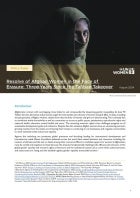
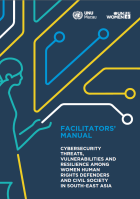
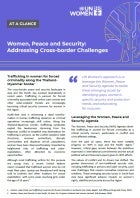
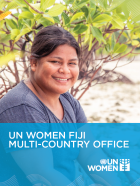

![[cover]](/sites/default/files/styles/search_image_140px/public/2024-06/np-c947-03-unwomen-policy-brief-gedsi-post-crisis-202-960px.jpg?itok=G_7Qks6P)
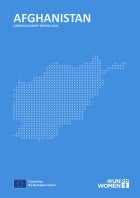
![[cover]](/sites/default/files/styles/search_image_140px/public/2024-05/ap-c881-cybersecurity-resilience-report-2024-960px.jpg?itok=Wz8Y1AyN)
![[cover]](/sites/default/files/styles/search_image_140px/public/2024-05/pk-cx-more-than-recreation-apr2024-960pxpx.jpg?itok=SpSBhLFk)
![[cover]](/sites/default/files/styles/search_image_140px/public/2024-05/af-cx-unwomenxdoha-brief_feb2024-960px.jpg?itok=nT_u0ZPw)
![[cover]](/sites/default/files/styles/search_image_140px/public/2024-04/bd-c801-charter-of-demand-english-960px.jpg?itok=4wqHrNeJ)
![[cover]](/sites/default/files/styles/search_image_140px/public/2024-04/in-c772-workbook_fylp-960px.jpg?itok=QdyrqHgZ)
![[cover]](/sites/default/files/styles/search_image_140px/public/2024-04/in-c771-resource-toolkit_fylp-960px.jpg?itok=GbxQmzxj)
![[cover]](/sites/default/files/styles/search_image_140px/public/2024-04/in-c770-needs-assessment_cover-960px.jpg?itok=-ntoHkkg)